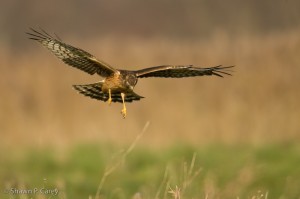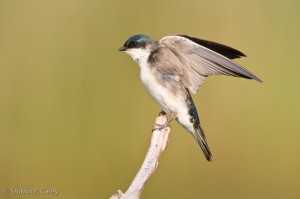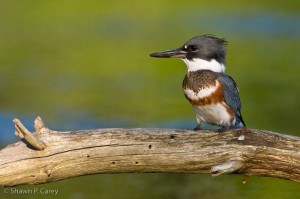
… the wings alive!–excite the marbled snows…
A fugue of wings darts down through the still air,
A dancing passage of staccato notes,
Now up, now down, and glancing everywhere,
Glissandos of black caps and neat white throats.
Here come the chickadees!
—from A Fugue of Wings, May Sarton (1961)
“Why watch buurds?” ask skeptical, even dismissive, acquaintances.
“I’ll tell you why,” I once said perkily, then recited a long list of reasons. Those reasons — written down, expanded, revised – were then lost, so I’m writing them again. They may have changed some, as I have over 30 years at America’s second most popular outdoor hobby – birdwatching, casually called ‘birding’.
 Here’s what birding can do for you.
Here’s what birding can do for you.
Bring you closer to a beautiful natural family. Birds are amazing: they’ve inspired and awed mankind in song and saga since dawn-age. Birds not only fly, but hover, wheel, soar, dive, and migrate incredible distances. (Some even walk funny). Many have: fascinating, complex – even mysterious and confusing — songs and calls; extraordinarily resilient adaptive powers for survival; plumage that changes seasonally.
Get you outdoors. Plenty of exercise hiking the backroads, woods, mountains, and beaches in pursuit of these often elusive winged critters.
Sharpen your eyes. Learning fine details of bird observation (field marks, habits, and movements) are critical to satisfactory (ie, accurate) bird identification.
Retune your ears. To become good at birding, you’ll eventually learn the songs (and calls and other communicative noises) made by the 300+ species found in the Bay State each year. (Make that 800 nationally, and 10,000 worldwide. Gasp!)
Make you curious. Not just about the little things you see and hear (and take for granted) everyday, but in a larger sense. Read on.
Interests you in related studies (botany, zoology, geography, natural history.) It’s not a stretch to be curious about which berries a Cedar Waxwing prefers, the favored nesting trees of Wood Ducks, why some Canada Geese migrate and some do not; why Eastern US gets one hummingbird and the West gets 20!
Improve your map-reading, giving and getting accurate directions. Finding a house on a street is one thing, but finding a specific 5″ warbler that’s been located in a 10-acre park will take require serious up-grading and fine-tuning of your homing skills. MapQuest will take you just so far (although GPS is now being utilized by extremely efficient birders in Europe). Even looking at a landscape or a single tree together with others, you need skills to point onlookers to a very specific spot. (Pointing and saying ‘up there!’ won’t usually do the trick.)
Teach ecology and habitat preservation. Everyone’s talking the talk of ‘green revolution’ these days: hybrid cars, wind farms, compact fluorescents, canvas grocery bags, lights out, you name it. But who walks the walk? Why, birders, of course, since before it became hip!
Provide amusement for a minute or all day. You can bird actively during a ten-minute stroll or an all-day hike.
Give you a hobby that’s portable and cheap. At least at first. All you need to start is a good field-guide (Sibley’s or Peterson’s, $25) and decent binoculars (make inquiries, spend $250 up). Later on, more field guides, better binos, and a telescope. Much later on, plane tickets to exotic places for expensive and exhausting field trips. But not yet!
Travel with you world-wide. Pop your binos in your horncase or backpack, read up on The Birds of Thailand or Costa Rica, and you can bird the globe, wide-eyed and digging the scene while the band’s asleep on the bus.
Easy birding can start right outside your dorm or classroom. Herring Gulls overhead. Starlings and Pigeons in the squares. Pearly Mourning Doves cooing and bright-red Cardinals wheet-wheeting in the trees, House Sparrows chirping in the bushes and under your feet outside Starbucks. (A pair of American Kestrels nested in the roof cornice at 11 Haviland Street last year; dunno if they’re back.)
Birding can mix with other activities, like, how about — Red Sox baseball. From April thru (we hope) October, birding right in Fenway Park can offer amusement, especially if the game’s an error-filled teeth-grinder. Last April during a day game I logged from the bleachers: Mourning Doves (strafing the beachball set as they flew back and forth across the bleachers); House Sparrows (copulating on the scoreboard wall); Chimney Swifts (surfing a lull in the NW wind); Grackles and Redwinged Blackbirds (clacking as they migrated overhead); (Rock) Pigeons, Herring Gulls, and a Great Blue Heron soaring overhead, Starlings kibitzing on the light stanchions, the resident Red-tailed Hawk (King of the 400 Club).
And the birding can be much better in the nearby Victory Gardens before or after spring day games. Stand with your back to the Ted Williams statue outside Gate B, then head (almost) straight across Boylston St. to the Fenway. Between the garden’s numbered rows – despite the hard-working spring gardeners — you may well find cardinals, robins, white-throated sparrows, now-bright goldfinches; maybe a hermit thrush, brown thrasher, Carolina wren, common yellowthroat, or even surprise an explosive American Woodcock. Perched over the river, look for the bull-headed, quick-cackling Belted Kingfisher; seek higher up for Tree Swallows, cruising the skies for flying bugs; or atop the phragmites reeds for the gurgling call of the Red-winged Blackbird.
Other cool birding spots in Boston (check-a da web): the entire Emerald Necklace of connected bodies of water (of which the Victory Gardens and The Muddy River are just one segment), that extends from the Charles River to Jamaica Pond. Chestnut Hill Reservoir.
In Brookline: Hall’s Pond (behind 1000 Beacon Street); In Cambridge: Mount Auburn Cemetery (on the bus-line a mile from Harvard Square), Danehy Park and Fresh Pond (near Fresh Pond Circle).
Groups you might want to join up with: Brookline Bird Club, Massachusetts Audubon Society. Good birdin’, fellow musicians!
Fred Bouchard is a faculty member in the Liberal Arts Department at Berklee.





